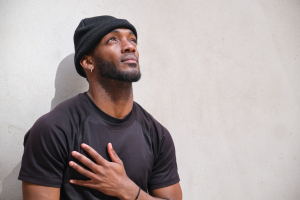The term ‘woke right’ is less offensive than its ideas

Imagine that it's 2021 and you've run across a social media account loudly proclaiming that: 1. certain demographic groups are oppressed because of their race, gender, and sexuality 2. society is suffused by subtle "hegemonic narratives" that justify the power of dominant demographic groups, 3. most people are blind to these forces, and 4. the only solution is not reform but radical social transformation. You'd likely assume that you were talking to a progressive who was parroting the work of activist-scholars like Robin DiAngelo and Ibram X. Kendi.
In 2021, you would likely have been correct — a person making such claims would have almost been certainly a progressive. But anyone who has spent time on X (formerly known as Twitter) in the last few months knows that things have changed. Today, a small but vocal group of people on the right, including some Christians, are making these same claims with all the roles reversed: 1. straight white men are oppressed, 2. society is ruled by women and is suffused by hegemonic narratives like "the longhouse" and "the postwar consensus" 3. "normies" are blind to this reality and 4. the only solution is a Protestant Franco or a Christian prince.
Does this sound unbelievable? See for yourself here, here, and here. Some Christians on the right really are embracing a bizarro-world, photo-negative analog of wokeness, but with all the demographic roles reversed. For this reason, many ardent critics of wokeness, including atheist activist James Lindsay, cultural commentator Konstantin Kisin, comedian Andrew Doyle (aka Titania McGrath), and psychologist Jordan Peterson have begun to warn about the "woke right." To this list, we could add Evangelicals like Kevin DeYoung, Doug Wilson, and Seth Dillon, who have raised related concerns about what will happen to the Church if it rejects left-wing wokeness only to embrace the right-wing version.
But is the label "woke right" legitimate? Or is it just an unfair, overly broad slur? It depends.
What's in a name?
First, for critics of the term "woke right," it is an oxymoron. To them, wokeness is necessarily a left-wing, progressive phenomenon; the term "woke right" makes about as much sense as "square circle" or "married bachelor." Is this argument correct?
Politically, it is certainly true that the woke left and the so-called "woke right" are polar opposites. The woke left wants to destroy all hierarchies and embraces egalitarianism. In contrast, the "woke right" believes strongly in hierarchy and rejects egalitarianism. So, if we think of wokeness primarily in terms of politics, the phrase "woke right" does indeed seem to be a contradiction.
However, this argument is fatally flawed because wokeness is not primarily about politics. Instead, it has always been about ideas. For example, some on the "woke left" are classical Marxists, others are anarchists, and others are liberals. These groups are ultimately pursuing markedly different political goals. Yet we don't throw up our hands and conclude that the word "woke" therefore has no meaning.
Rather, we recognize that people in all three groups have embraced the same set of woke ideas about identity, power, oppression, and knowledge. Therefore, they can all rightly be characterized as part of the "woke left" despite their political differences. In the same way, people who pursue right-wing political goals while embracing a woke ideological framework can be rightly called "the woke right."
Second, is it true that the label "woke right" can be deployed overly broadly as a slur or merely as a tool to silence dissent? Of course. The same could be said (and was said) of accusations of "wokeness" in 2021.
Many of us were constantly told that the label "woke" was nothing more than a lazy slur meant to discourage or silence Christians who merely cared about racism and sexism. And, admittedly, that did happen on occasion. But few people concluded that they should jettison the word "woke" or deny that the label was describing a real phenomenon. Indeed, many of us discovered that the constant hand-wringing and quibbling over semantics was actually a way to distract attention from the crucial question: are woke ideas true or false, biblical or unbiblical?
For what it's worth, I personally tend to use the phrase "dissident right" in place of "woke right" to avoid this objection. However, what matters is not the label we use, but the underlying ideas the label describes.
Finally, is it really true that the dissident right has adopted some of the same Neo-Marxist ideas as the left? In a word, yes.
Numerousscholars have pointed out that radical right movements over the last few decades have explicitly, openly embraced the ideas of leftist thinkers like Antonio Gramsci and Michael Foucault. Of course, it is doubtful that most people on the dissident right are actively reading those authors any more than your progressive neighbor spends his nights poring over bell hooks or Judith Butler. Rather, these ideas are "in the water" in certain circles. You can adopt the lingo and the outlook of these movements without having studied, or even heard of, the primary texts. Regardless, the connections are there for those who need confirmation.
What's next?
Cultural critic Rob Henderson observed in 2021 that progressive activism takes place in four stages:
Step 1: It's not really happening.
Step 2: Yeah, it's happening, but it's not a big deal.
Step 3: It's a good thing, actually.
Step 4: People freaking out about it are the real problem.
Given recent developments on social media, it seems that we have reached Step 3.5 when it comes to the dissident right. Dissidents are increasingly willing to admit that they have embraced many of the ideas of leftwing luminaries like Karl Marx, Antonio Gramsci, Herbert Marcuse, Michel Foucault, and Saul Alinsky. As I've explained elsewhere, I think that is exceptionally unwise.
However, we should be grateful that people are being more open about their beliefs. Honest dialogue is the best way to recognize blind spots, reexamine assumptions, expose error, and test all things against Scripture. Transparency will facilitate these pursuits because sunlight is the best disinfectant.
Dr. Neil Shenvi has an AB in chemistry from Princeton University and a PhD in theoretical chemistry from UC Berkeley. He is the author of two books, Why Believe?: A Reasoned Approach to Christianity (Crossway, 2022) and Critical Dilemma: The Rise of Critical Theories and Social Justice Ideology (Harvest House, 2023). In his spare time, he enjoys reading, weightlifting, and playing video games. He can be reached on Twitter at @NeilShenvi or through his website www.shenviapologetics.com.




























